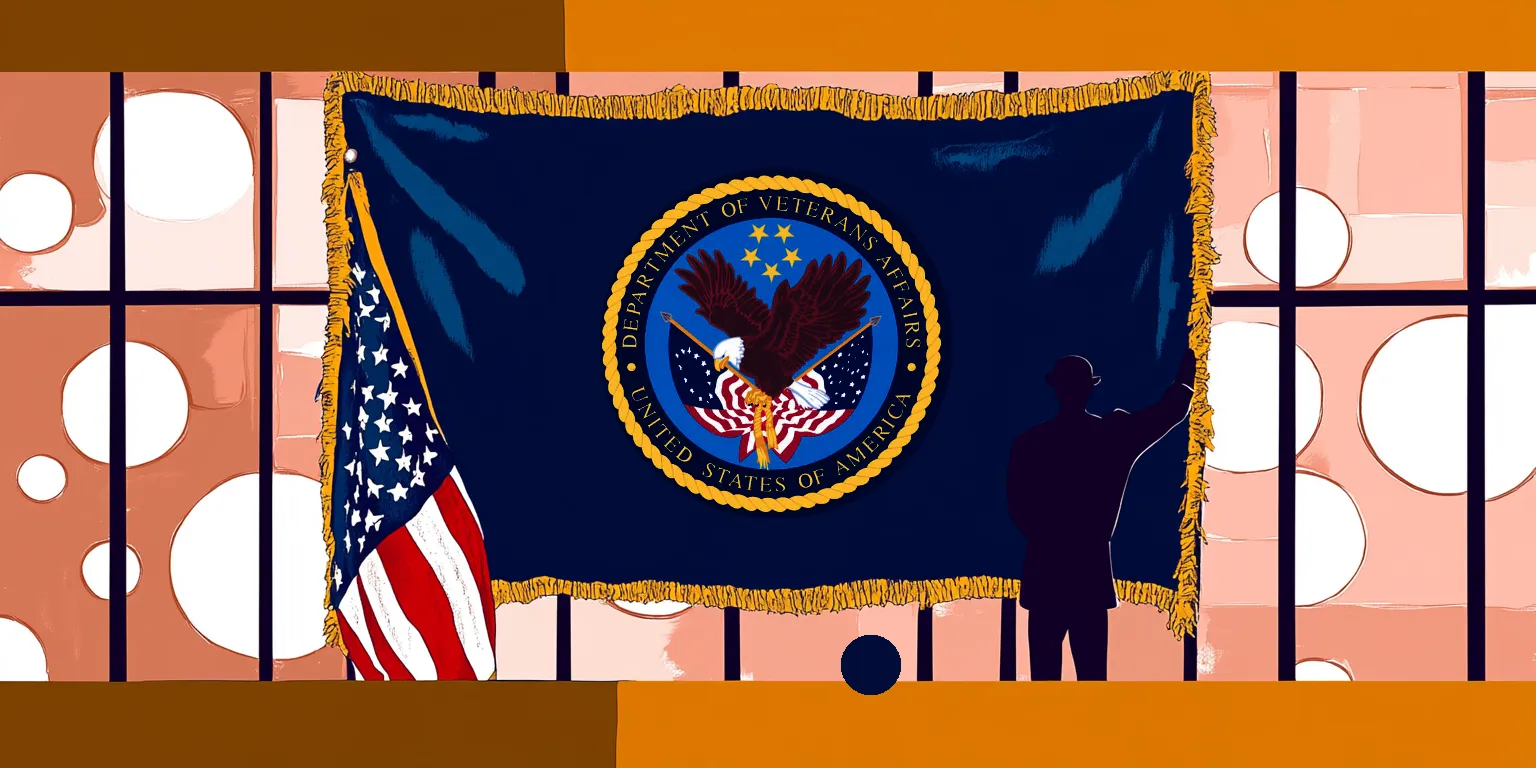An independent FDA advisory panel has voted against the approval of Lykos Therapeutics’ (formerly MAPS PBC) MDMA-assisted therapy for treating post-traumatic stress disorder (PTSD). This decision comes after an extensive review of recent clinical trials and raises significant concerns about the drug’s efficacy and the integrity of the research data. The panel’s recommendation, though not binding, is usually followed by the FDA, making it a critical juncture for the future of MDMA as a treatment for PTSD.(1, 2)
What is an FDA Review Panel?

An FDA review panel, formally known as an advisory committee, is a group of independent experts who evaluate the safety and efficacy of new drugs, medical devices, and treatments. These panels comprise specialists from various fields, including medicine, science, and public health, who provide non-binding recommendations to the FDA based on their review of clinical trial data and other relevant information. These panels offer an unbiased, expert perspective to help guide the FDA in making informed decisions about the approval and regulation of medical products. Although the FDA is not obligated to follow the panel’s recommendations, it typically does, as these panels play a crucial role in ensuring that new treatments meet the necessary standards for safety and effectiveness before being made available to the public.
FDA Panel Key Concerns
The panel, which voted 9-2 against the effectiveness of MDMA in combination with talk therapy and 10-1 against the overall benefit-risk balance, highlighted numerous shortcomings in the clinical trials. These included potential misconduct, data biases, and the challenge of maintaining a double-blind study (a study where neither the researchers nor participants know which drug has been administered) due to the noticeable effects of MDMA. The committee expressed doubts about the validity of the results, with some members pointing out that many participants could quickly determine whether they had received the active drug or a placebo, thus compromising the study’s integrity. Additionally, the panel noted significant gaps in the data, including unanswered questions about MDMA’s potential for abuse and long-term safety.(1, 2)

Concerns about the potential for abuse and the ethical implications of the psychological interventions used in the trials were also voiced. The advisory panel noted a lack of safeguards to prevent abuse and questioned the therapeutic approach employed during the sessions. Instances of alleged misconduct, including sexual misconduct by therapists, further complicated the assessment of MDMA’s safety and efficacy for PTSD treatment. These ethical issues raise serious questions about the overall trustworthiness of the study’s findings and the potential risks to patients.(1, 2)
Keep Up with Uncensored Psychedelic Trends
Join our newsletter at Psychedelics Uncensored.
We respect and protect your privacy. By subscribing your info will be subject to our privacy policy . Unsubscribe easily at any time
Supporters of MDMA-assisted therapy, including veterans and researchers, emphasized the urgent need for new PTSD treatments and shared personal testimonials about the drug’s transformative effects. However, critics, including members of the advisory panel and researchers from institutions like Johns Hopkins University, raised serious concerns about the study design, data reporting, and potential long-term risks associated with MDMA use. These critics argue that the therapeutic benefits observed in the trials might not be as significant as reported and could be overshadowed by the drug’s risks, including the potential for abuse and dependency.(1, 2)
Another significant issue discussed was the functional unblinding of the trials, where participants could easily tell if they were receiving MDMA or a placebo. Some panel members argued this may have influenced their behavior and responses, biasing the results. However, critics of the panel’s decision have pointed out that functional unblinding is relatively common in clinical trials involving psychiatric medications. This occurs because psychiatric drugs, especially those with pronounced psychoactive effects, often produce noticeable changes in mood, perception, or behavior that can reveal whether a participant is receiving the active drug or a placebo.(3)
Additionally, the long-term data presented by the study sponsors showed a high dropout rate and instances of participants using illicit drugs, further muddying the results. These factors contributed to the panel’s decision to vote against recommending MDMA for PTSD treatment.(1, 2)
Some of the strongest arguments for approval came from patients who spoke during the public comment period about the urgent need for an effective treatment. Veterans who participated in the MDMA trials reported significant improvements in their PTSD symptoms and overall quality of life. For instance, Nick Brown, a military veteran from Colorado, shared how the treatment helped him develop self-compassion and improved his relationships and sleep. These personal stories highlight the potential benefits of MDMA-assisted therapy for individuals who have not found relief with existing treatments.(1, 2)
Keep Up with Psychedelic Trends
Get uncensored psychedelic news, events, and updates. Join Psychedelics Uncensored!
We respect and protect your privacy. By subscribing your info will be subject to our privacy policy . Unsubscribe easily at any time
However, the critics were equally vocal. Researchers and panel members pointed to the possibility of bias in the trials, with some suggesting that the therapists involved may have encouraged favorable reports and downplayed adverse events. Allegations of misconduct, including reports of inappropriate therapist behavior during the trials, further fueled these concerns. However, the FDA assembled presentations indicated that they may still have a path forward. The FDA has suggested to creation of a Risk Evaluation and Mitigation Strategy (REMS), suggesting that some within the agency still view Lykos’ MDMA-AT as favorably.(1, 2)
What is the Future of MDMA-Assisted Therapy?

Despite the panel’s recommendation, the FDA’s final decision on MDMA-assisted therapy is expected by August 11. Lykos Therapeutics plans to work with the FDA to find a path forward, hoping to ensure the responsible and careful introduction of MDMA-assisted therapy into the healthcare system if approved. This process will involve addressing the identified gaps in the data, improving trial designs, and ensuring robust ethical safeguards.
Lykos Therapeutics’ Chief Executive Officer Amy Emerson released a press statement expressing disappointment with the panel’s decision. Saying, “We are disappointed in today’s vote given the urgent unmet need in PTSD and appreciate that the committee faced a challenging and atypical assignment, which was to evaluate a therapeutic approach that combines drug therapy (MDMA) and psychological intervention. We remain committed to working with the FDA to address outstanding questions so that we may find a path forward to ensure the responsible and careful introduction of MDMA-assisted therapy into the healthcare system if approved. We are grateful to the advocates, clinical trial participants, and people living with PTSD who shared their testimony in the open public hearing and through written comments, and will continue to do everything we can to bring this potential new therapeutic option to people living with PTSD.”(4)
The outcome of this decision may significantly impact the future of psychedelic-assisted therapies and their potential integration into mainstream mental health treatment. If the FDA ultimately approves MDMA for PTSD, it could pave the way for other psychedelic therapies, offering new hope for patients with various mental health conditions. However, if the approval is denied, it will not mark the end of psychedelic-assisted therapy, as Lykos Therapeutics and other organizations still have a significant number of compounds undergoing clinical trials.
Sources

1. Stone, W. (2024, June 4). FDA advisors reject MDMA therapy for PTSD, amid concerns over research. NPR; NPR. https://www.npr.org/sections/shots-health-news/2024/06/04/nx-s1-4991112/mdma-therapy-ptsd-fda-advisors
2. Why FDA Panel Rejected MDMA for PTSD Treatment. (2024, June 5). Psychiatrist.com. https://www.psychiatrist.com/news/why-fda-panel-rejected-mdma-for-ptsd-treatment/
3. Bhatia, A., Appelbaum, P. S., & Wisner, K. L. (2021). Unblinding in Randomized Controlled Trials: A Research Ethics Case. Ethics & Human Research, 43(2), 28–34. https://doi.org/10.1002/eahr.500084
4. Therapeutics, L. (n.d.). Lykos Therapeutics Provides Update on FDA Advisory Committee Meeting for Investigational MDMA-Assisted Therapy for PTSD. Www.prnewswire.com. Retrieved June 6, 2024, from https://www.prnewswire.com/news-releases/lykos-therapeutics-provides-update-on-fda-advisory-committee-meeting-for-investigational-mdma-assisted-therapy-for-ptsd-302163950.html
This material is not intended as a replacement or substitute for any legal or medical advice. Always consult a medical professional about your health needs. Psychedelics are widely illegal in the United States, and readers should always be informed about local, state, and federal regulations regarding psychedelics or other drugs.

 David Connell
David Connell






 Jason Najum
Jason Najum